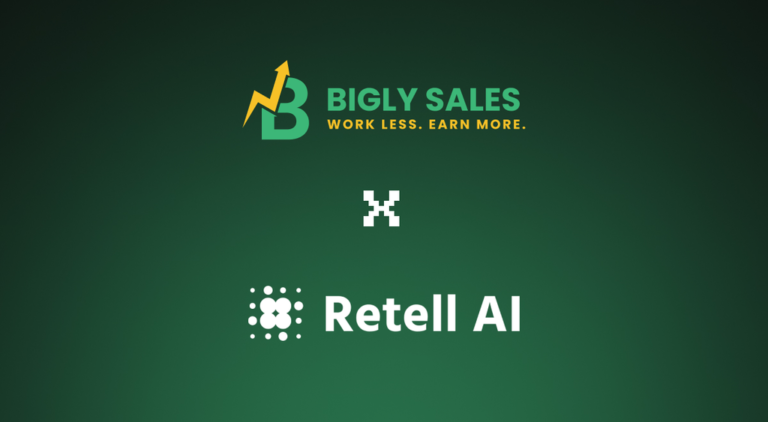“Data is the new oil.” This bold statement from The Economist highlights a pivotal shift in the global economic landscape where data, not oil, drives growth and innovation. In this context, understanding customer interactions through call tracking and conversation intelligence statistics is not just useful—it’s essential.
These technologies offer more than just numbers; they provide a window into the customer’s mind, enabling businesses to tailor their strategies precisely and responsively.
As we go deep into these statistics, we’ll uncover how they can reshape marketing approaches, boost sales efficiency, and enhance customer service—all crucial for staying competitive in today’s fast-paced market.
Replace your call center with AI and cut cost by up to 90%
The Impact of Conversation Intelligence
For customer expectations, businesses must not only meet but anticipate the needs of their consumers. This is where conversation intelligence, equipped with powerful call tracking capabilities, plays a transformative role.
By analyzing vast amounts of call tracking and conversation intelligence statistics, companies are unlocking insights that were previously buried in unstructured data from customer calls.
What Does Conversation Intelligence Do?
At its core, conversation intelligence is about turning every customer interaction into a learning opportunity. It uses AI to sift through audio from customer calls, extracting and analyzing words and sentiments that highlight customer desires and pain points.
This process allows businesses to:
- Identify trends and patterns that help predict customer behavior.
- Enhance personalization of customer interactions by understanding the specific needs and contexts of conversations.
- Streamline operations by automating and improving the quality assurance processes in call centers.
Real-World Benefits of Conversation Intelligence
The statistics speak volumes about the impact of these technologies. For instance, organizations that implement conversation intelligence solutions have seen:
- A 10-15 times higher conversion rate from phone calls compared to web leads, highlighting the potency of personalized, real-time conversations.
- Increased customer retention rates, with businesses reporting a 28% higher retention for callers compared to web visitors.
- An impressive 49% improvement in customer satisfaction through the use of speech analytics.
Why Conversation Intelligence Matters
The ability to not just listen, but truly understand and act on customer conversations is crucial. With conversation intelligence, businesses gain the following advantages:
- Data-Driven Decisions: Leverage detailed insights from customer interactions to make informed strategic decisions.
- Improved Customer Experiences: Tailor interactions to meet the exact needs of customers, thereby enhancing satisfaction and loyalty.
- Operational Efficiency: Automate routine processes and focus human efforts on complex queries, increasing overall productivity.
Comprehensive Statistics for 2023
Understanding the nuances of customer interactions can significantly elevate a company’s strategy. This is vividly demonstrated through compelling call tracking and conversation intelligence statistics that reveal how businesses can enhance their operational efficiency and customer engagement.
General Insights
Here’s a closer look at some of the key insights these statistics offer:
- 82% of marketers acknowledge that insights from inbound calls may reveal blind spots in their marketing strategies. This statistic underscores the potential of call data to pinpoint areas needing improvement.
- A striking 60% of marketers report that their organizations lack sufficient data to understand and effectively engage prospects and customers, highlighting a significant opportunity for growth through enhanced data capture and analysis.
- Phone calls convert to revenue 10-15 times more frequently than web leads. This statistic illustrates the high value of direct human interaction in sales processes.
- Organizations that have embraced conversation intelligence report a 25% or more increase in phone conversion rates over the past year (Source: Forrester), showcasing the direct impact of effective conversation analysis on the bottom line.
- 49% of organizations find that using speech analytics supports customer satisfaction, indicating that understanding the nuances of customer speech can lead directly to improved service strategies.
- The caller retention rate is 28% higher than that for web leads, which points to the lasting impact of personalized, real-time phone interactions on customer loyalty.
By Business Discipline
Understanding how call tracking and conversation intelligence can be applied across different business disciplines is key to harnessing their full potential. These technologies offer unique advantages that can transform marketing, sales, customer experience, and e-commerce. Here’s an in-depth look at each area.
Marketing
In marketing, understanding and connecting with your audience is paramount. This is where call tracking and conversation intelligence technologies step in, providing marketers with critical insights that drive more informed and effective strategies.
Here’s how these tools are shaping the marketing landscape according to recent statistics:
- 62% of marketers fail to attribute revenue to inbound calls, highlighting a significant area for improvement in capturing valuable conversion data.
- 88% of local business searches on a mobile device result in a call or visit within 24 hours, emphasizing the importance of optimizing for local SEO and mobile-friendly experiences.
- 60% of organizations report lacking the data to engage sales prospects effectively. This gap can be filled by insights derived from conversation intelligence, providing a deeper understanding of customer intents and preferences.
- 85% of marketers believe that inbound calls and phone conversations are critical components of their digital-first strategy. This statistic supports the idea that integrating call data can bridge the online-to-offline gap in customer engagement.
- 72% of shoppers act only on marketing messages that are customized to their interests, indicating the high value of personalized communication in driving engagement and conversions.
- Utilizing conversation intelligence, 48% of marketers expect to enhance customer experiences, thus potentially increasing brand loyalty and customer lifetime value.
Sales
In the high-stakes world of sales, every interaction and piece of data can tip the scales between a missed opportunity and a closed deal. That’s where call tracking and conversation intelligence come into play, transforming every call into a strategic asset.
Let’s explore how these tools are revolutionizing sales processes through insightful statistics.
- Phone calls convert to revenue 10-15 times more frequently than web leads (Source: BIA/Kelsey), underscoring the importance of optimizing call interactions for sales success.
- 41% of organizations report a significant increase in phone conversion rates, with improvements of 25% or more over the past year when using advanced call analytics (Source: Forrester).
- 56% of organizations using speech analytics have improved the customer experience by managing contact center journeys in real time (Source: Opus Research). This real-time management helps sales teams to adjust their tactics on the fly, maximizing the effectiveness of each interaction.
- 84% of marketers report that phone calls have higher conversion rates with larger order values compared to other forms of engagement (Source: Forrester), highlighting the value of focused and personalized call strategies in sales.
- 75% of sales agents’ long-term success depends on their interpersonal skills, which can be honed using AI-driven feedback and training (Source: American Management Association).
- Advanced analytics are anticipated by 66% of call center businesses as a key investment, aiming to enhance customer journeys and drive sales
Customer Experience
In today’s market, the quality of customer experience can be the deciding factor in whether a business thrives or falters. Leveraging call tracking and conversation intelligence can significantly elevate the level of service businesses provide, turning ordinary customer interactions into exceptional experiences.
Here’s how these tools are making a difference, backed by compelling statistics.
- 48% of marketers expect to enhance customer experiences by implementing conversation intelligence solutions. This indicates a strong belief in the power of tailored communications driven by deep insights into customer conversations.
- Personalization leads to increased customer loyalty and satisfaction, with statistics showing that 72% of shoppers act only on marketing messages tailored to their interests.
- 49% of organizations using speech analytics report improved productivity by anticipating the purpose of calls, which helps in reducing wait times and enhancing the overall customer experience.
- Effective management of contact center journeys, reported by 56% of organizations, has led to better customer experiences through timely and relevant agent assistance.
- Automated contact center QA, enabled by AI, helps in consistently monitoring and improving the quality of interactions, ensuring that customer service representatives meet the high standards expected by consumers.
- 56% of organizations have improved their customer experience by using real-time data to manage journeys and provide agent assistance, showcasing the practical benefits of integrating these technologies in routine quality assessments.
E-Commerce
In e-commerce, where digital storefronts are open 24/7 and competition is just a click away, leveraging every advantage is crucial. Call tracking and conversation intelligence emerge as powerful tools in this space, providing deep insights into customer behaviors and preferences that can significantly enhance the online shopping experience.
Here’s a detailed exploration of how these technologies are transforming e-commerce.
- Data from conversation intelligence helps in understanding the language and phrases customers use, which can be mirrored in SEO strategies and ad copy to align more closely with customer search behaviors.
- 88% of searches for local businesses on a mobile device result in a call or visit within 24 hours. For e-commerce, this statistic highlights the importance of optimizing local SEO and ensuring that mobile users can easily transition from search to contact.
- 72% of shoppers are influenced by personalized marketing messages. E-commerce businesses can leverage conversation intelligence to tailor not only the on-page content and offers but also to customize the support and sales calls to individual needs, increasing conversion rates.
- Implementing personalized experiences effectively requires a deep understanding of customer preferences, which can be gleaned from analytics provided by conversation intelligence tools. This might involve customizing calls based on the customer’s browsing history and previously expressed preferences, thereby enhancing the effectiveness of direct interactions.
- By analyzing the content of customer service calls, e-commerce businesses can identify common pain points that lead to cart abandonment, such as unclear pricing or complicated checkout processes.
- Proactive customer support, enabled by AI-driven insights from conversation intelligence, can help address these issues in real-time. For example, if a pattern of calls highlights confusion at a certain step of the checkout process, businesses can streamline this step to reduce friction and improve completion rates.
- Caller retention rates being 28% higher than web lead retention rates indicate the importance of integrating phone-based support into digital strategies. E-commerce businesses can use conversation intelligence to enhance these interactions, ensuring that customers feel heard and valued, which increases loyalty.
- Regular analysis of call tracking data helps e-commerce platforms to continuously refine their customer interactions strategy, ensuring that they evolve with customer expectations and market trends.
By Industry
The transformative power of call tracking and conversation intelligence extends across various industries, each with its unique challenges and opportunities. Here, we delve into how these technologies are being tailored to meet specific industry needs, demonstrating their versatility and critical role in driving business success.
Automotive
In the automotive industry, where the journey to purchase can be as complex as the vehicles themselves, call tracking and conversation intelligence are proving indispensable. These technologies not only streamline the sales process but also enhance customer support and marketing strategies. Here’s how they’re making an impact, according to the latest statistics.
- 66% of automotive calls generated by search engines come from paid searches, highlighting the importance of targeted advertising and the need for integration between digital campaigns and call data.
- 67% of automotive customers call during the purchasing journey, indicating that phone interactions remain a critical component of the automotive sales process, especially in the final decision-making stages.
- 61% of new and used vehicle shoppers contact the dealership by calling after a search, demonstrating the high intent of callers and the opportunity to convert these leads through effective, personalized follow-ups.
- Automotive dealerships that utilize call tracking and conversation intelligence report higher conversion rates, with a notable percentage of calls leading to appointments and sales.
- The use of speech analytics in automotive sales allows dealerships to understand the common questions and concerns of callers, tailoring marketing messages to address these points and reduce potential hesitations buyers might have.
- Automotive industry marketers are using conversation intelligence to optimize ad spend and placement, ensuring that marketing dollars are invested in channels that generate the most profitable leads.
- Identifying the most effective sales techniques and customer service practices through analysis of call data, allowing for optimization of staff training and resource allocation.
- Decreasing the rate of missed opportunities by using AI-driven tools to ensure that every customer call is answered or directed appropriately, thereby maximizing potential sales and improving customer satisfaction rates.
Financial Services
In the financial services industry, where trust and precision are paramount, call tracking and conversation intelligence are proving invaluable. These technologies not only enhance customer service but also ensure accuracy and compliance, which are critical in this heavily regulated sector. Here’s how financial services are benefiting from these innovative tools.
- Personalized Interactions: By analyzing customer calls, financial institutions can offer more personalized advice and solutions, tailored to individual financial situations and needs.
- Efficient Problem Resolution: Conversation intelligence enables quicker identification and resolution of customer issues, which enhances satisfaction and fosters trust.
- Targeted Campaigns: Insights gleaned from call data help institutions understand which products or services customers are most interested in, allowing for more targeted and effective marketing campaigns.
- Conversion Tracking: By tracking which marketing efforts lead to calls, consultations, and ultimately conversions, financial institutions can better allocate their marketing resources and maximize ROI.
- Compliance Monitoring: Automated call tracking and analysis can flag potential compliance issues in real-time, allowing institutions to address them proactively.
- Audit Trails: Conversation intelligence provides detailed records of all customer interactions, creating an audit trail that can be invaluable during regulatory reviews or audits.
- Automated Documentation: Call transcriptions provided by conversation intelligence tools help in automatically documenting all customer interactions, which reduces manual labor and increases accuracy.
- Resource Optimization: Call tracking analytics help financial institutions optimize their staffing, ensuring that customer service representatives are available during peak times without overspending on labor.
Healthcare
In the healthcare industry, where the quality of communication can significantly impact patient care and satisfaction, call tracking and conversation intelligence are becoming increasingly vital. These tools not only help in managing patient interactions more efficiently but also provide insights that can improve the overall quality of healthcare services. Here’s a closer look at the transformative role these technologies are playing in healthcare.
- Call tracking helps healthcare facilities monitor call volumes and timings, allowing them to adjust staffing accordingly to handle peak times, reducing wait times and missed calls.
- By analyzing conversation data, healthcare providers can identify common questions or concerns patients express over the phone, which can be addressed preemptively on websites or through patient portals, streamlining the appointment scheduling process.
- 76% of healthcare patients call during their care journey, emphasizing the importance of effective communication in patient follow-up and care coordination.
- Conversation intelligence can automatically flag follow-up calls that are due, ensuring that all patients receive timely attention and that no follow-up is missed.
- Speech analytics can help healthcare providers understand patient emotions and sentiments during calls, enabling more empathetic and personalized communication.
- Personalized interactions based on previous call data can improve patient trust and compliance with treatment plans, as patients feel more understood and valued.
- Automated data entry from recorded calls reduces manual errors and frees up staff for more patient-focused tasks.
- Insights from conversation analytics can help streamline workflows, such as by identifying common bottlenecks in information exchange between departments or with external providers.
Home Services
In the home services industry, where timely and efficient service is paramount, leveraging call tracking and conversation intelligence can significantly enhance operational efficiencies and customer satisfaction. These technologies not only streamline service processes but also provide insights that can lead to better service strategies. Here’s how they are making an impact.
- Call tracking enables businesses to analyze call volumes and patterns, helping them optimize staffing schedules to ensure that customer calls are never missed and response times are minimized.
- Real-time conversation analytics can guide service agents to resolve issues more efficiently, providing them with immediate insights into customer problems and the most effective solutions based on past interactions.
- 92% of consumers call a business after running an appliance repair search (Source: LSA), indicating the high importance of phone interactions in customer decision-making processes.
- Conversation intelligence tools can analyze customer sentiment and feedback during calls, allowing businesses to adjust their communication strategies and improve the overall customer experience.
- By understanding the common issues and needs expressed in customer calls, home services businesses can tailor their marketing efforts to highlight their strengths in addressing these needs, thereby improving conversion rates.
- Call data can also identify which services are in highest demand, allowing businesses to focus their advertising and promotional efforts on these areas to maximize return on investment.
- Automated call analysis can quickly identify service trends and operational issues, enabling businesses to proactively address them before they escalate into costlier problems.
- Integration of AI-driven call tracking systems can reduce the need for extensive manual input, freeing up resources to focus more on service delivery and less on administrative tasks.
Insurance
In the insurance industry, effective communication and customer service are critical for retaining clients and managing claims efficiently. Call tracking and conversation intelligence are pivotal technologies that are transforming how insurance companies interact with customers, process claims, and improve overall service delivery. Here’s how these tools are benefiting the sector.
- Conversation intelligence enables faster and more accurate claims processing by automating the extraction and analysis of information from customer calls, reducing the manual effort required and speeding up resolution times.
- By analyzing past calls, insurance companies can identify common bottlenecks and issues in the claims process, allowing for proactive adjustments and improved customer experience.
- Call tracking provides insights into customer preferences and history, enabling agents to tailor their interactions and advice based on individual customer profiles.
- 78% of insurance consumers call a business after performing a search (Source: LSA), indicating the importance of optimizing these interactions to convert inquiries into continued patronage and loyalty.
- Insights from call data help insurance companies segment their customer base more effectively, allowing for more targeted and relevant marketing campaigns.
- By monitoring call outcomes, insurers can adjust their marketing messages to better align with what resonates with potential and existing customers, thereby increasing the effectiveness of their advertising spends.
- Automated analysis of call content can help reduce the need for large customer service teams, as common queries and issues can be resolved through automated responses or self-service options encouraged by insights from previous calls.
- Insurance companies can use call tracking to optimize resource allocation, such as by directing more resources to high-demand times or specific issues that require more attention, thus better managing personnel costs.
Telecommunications
In the telecommunications sector, where customer service and efficient communication are at the heart of business success, call tracking and conversation intelligence play critical roles. These technologies not only improve customer interactions but also streamline operational processes, helping telecom companies stay competitive in a fast-evolving industry. Here’s a look at the significant impacts of these tools.
- Call tracking allows telecom companies to analyze patterns and peak call times, enabling better staff allocation and reduced wait times for customers.
- Real-time conversation analytics can provide immediate feedback to customer service representatives, helping them address customer issues more effectively and improve satisfaction rates.
- Conversation intelligence helps identify the reasons for customer dissatisfaction, allowing telecom companies to proactively address these issues and improve retention.
- By analyzing call data, companies can tailor their communication strategies to meet the specific needs and preferences of their customer base, making interactions more effective and reducing the likelihood of churn.
- Telecom companies can use call tracking to determine which marketing campaigns are generating the most valuable calls, allowing them to focus their resources on the most effective strategies.
- Insights from conversation analytics can inform sales approaches, such as identifying the most common customer objections and training sales staff to address these effectively, thereby improving conversion rates.
- Automated systems powered by conversation intelligence can quickly identify common technical issues, guiding customers through troubleshooting steps or escalating complex issues to the appropriate personnel.
- Call tracking metrics can help identify trends in technical support calls, such as recurring issues with certain services or products, allowing for quicker resolutions and preventive measures.
Travel
In the travel industry, where the customer journey is both literal and figurative, call tracking and conversation intelligence are invaluable tools. These technologies enhance the travel experience by providing detailed insights into customer preferences and behaviors, allowing for highly personalized service. Here’s how they are transforming the industry.
- By analyzing customer calls, travel companies can understand individual preferences and concerns, such as room preferences in hotels or seating choices in flights, enabling tailored recommendations that enhance customer satisfaction.
- Real-time analytics help travel agents offer on-the-spot customized options, improving customer experiences and increasing the likelihood of repeat bookings.
- Call tracking provides insights into which marketing efforts are driving bookings, allowing travel companies to optimize their advertising spend towards the most effective channels.
- Conversation intelligence can identify common stumbling blocks in the booking process, such as confusing navigation or pricing transparency issues, enabling companies to simplify and enhance the booking experience.
- Conversation intelligence enables quick identification of urgent customer issues, allowing travel companies to prioritize and address these problems promptly, which is especially important during travel disruptions.
- Call tracking can help manage call volumes during peak times, such as holiday seasons or major events, ensuring that customer support is available when it’s most needed.
- Detailed call analysis provides insights into the reasons for customer calls, allowing companies to address underlying issues that may affect satisfaction and retention.
- Personalized follow-ups based on previous interactions can make customers feel valued, increasing loyalty and encouraging them to book again or recommend the service to others.
Replace your call center with AI and cut cost by up to 90%
Conclusion
As we have explored across various industries, call tracking and conversation intelligence are not merely tools for improving customer service—they are strategic assets that can transform businesses.
From healthcare to telecommunications, travel to automotive, these technologies provide a competitive edge by enhancing interactions, optimizing operational efficiency, and personalizing customer experiences.






